Dental care can be critical for kids with complex conditions
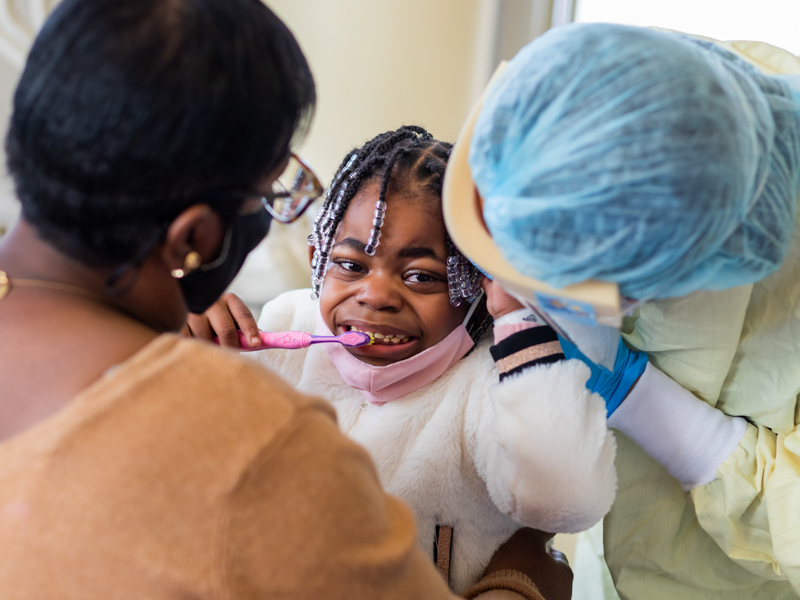
Like many children her age, Shameeka Goodman loves going to school, but isn’t crazy about going to the dentist.
The 6-year-old was born with multiple health challenges caused by a cloacal deformity. Affecting about one in 25,000 newborn girls, the defect impairs how the tracts merge for the rectum, vagina and urologic structures. Since birth, she’s been cared for by multiple Children’s of Mississippi specialists at the University of Mississippi Medical Center.
“She had several surgeries and ended up losing several centimeters of intestines,” said Shameeka’s mom, Vickie Goodman of Byram. “She had an ostomy, but we had that reversed. Now, she has a (gastrostomy) tube for feeding.”
Because she doesn’t eat orally, Shameeka’s teeth don’t get a workout, and plaque builds on them. Like many children with complex medical conditions, she needs care from pediatric dental specialists who can navigate her non-dental diseases while making sure her dental health is the best it can be.
Faculty in the School of Dentistry offer the most sophisticated treatment in the state for pediatric patients, providing a much-needed layer to the multidisciplinary care that fragile children receive.
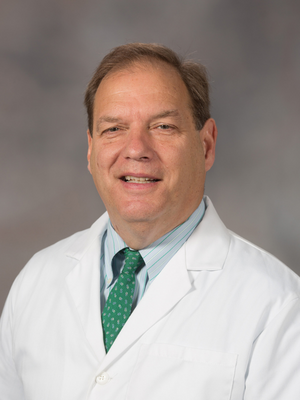
“At least 70 percent of patients in our children’s hospital have medically complex issues that can compromise or influence their dental care,” said Dr. Christopher Hughes, professor and chair of pediatric dentistry. “Not only can their dental care be compromised, but it adds to their susceptibility to other dental issues.”
Much of that dental treatment can only be provided at an academic medical center. Patients like Shameeka “often are referred to Jackson (UMMC) for that kind of care,” Hughes said.
Children’s of Mississippi specialists communicate frequently with Pediatric Dentistry, whether it’s picking up the phone to discuss a patient, exchanging emails or consulting the patient’s electronic health record.
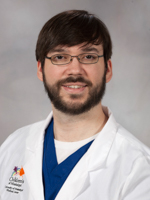
“We’re very lucky to have the colleagues we have in dentistry, and especially being at a university, we have access to folks with a knowledge of very difficult complex conditions and multi-stage diseases,” said Dr. Christian Paine, division chief of pediatric palliative medicine.
“One of our huge goals in complex care is to treat the whole patient,” he said. “When we do our assessments and see what the other needs are, there’s been a huge need to address problems with dental health that can inform so many other aspects of their general health, from the risk of infection to quality of life.”
Dental issues can be easily tied to other health challenges, Paine said. “A lot of these patients have behavioral concerns. Some of them are spastic, and they have teeth grinding. They don’t eat normally, so their gums will overgrow, or they have the risk of infection to their teeth. They bite down really hard, so it’s hard for their parents to get in there and brush their teeth.”
Since her birth at UMMC, Shameeka has had more than 40 surgeries. “She spent a year and eight months here as an inpatient,” Goodman said.
Goodman was a longtime Medical Center neonatal intensive care nurse during Shameeka’s infancy. Shameeka’s birth mother, Goodman said, was unable to give her the care she needed for her complex medical issues, and an older relative “said it was too much for her.”
When it was finally time for Shameeka to be discharged, “she had nowhere to go,” Goodman said.
The mother of three grown children, including a son who passed away two years ago, Goodman knew what she had to do.
“I adopted Shameeka because she needed me,” said Goodman, who retired in September 2020 and earned the title of stay-at-home mom.
Shameeka’s teeth, Goodman said, are a work in progress. “One tooth came out, but she hasn’t grown another tooth in its place, and it’s been two and a half years,” she said. “Her teeth aren’t getting cleaned from food, and because she’s a G-tube baby, it will keep accumulating.”
“As she grows older, she will definitely need to maintain her dental care.”
On a recent visit, Shameeka contentedly perused books and watched cartoons as she waited for her appointment in the Children’s of Mississippi Batson Tower, which houses the Eli Manning Clinics for Children and patient floors. But when she and her mom were called back by pediatric dentistry residents Dr. Bryan Rhoads and Dr. Bit Na Lee, Shameeka was anxious, squeezing her mom’s hand and crying harder the closer she got to the exam room.
Goodman sat with Shameeka in her lap as Lee tried to get a glimpse into Shameeka’s mouth. A few minutes in, Shameeka was presented with a brand-new cartoon character toothbrush, and she made the room light up when she held it in her tiny hand, opened her mouth and began to brush her own teeth.
That gave Lee the chance to zero in for a quick look at Shameeka’s teeth. But for children with Shameeka’s medical issues, a complete cleaning and fluoridation treatment often requires anesthesia.
“We don’t make the decision to use general anesthesia lightly, but sometimes you have to. We take into account the severity of their dental disease and their ability to cooperate in a dental chair,” Hughes said. “We are fortunate to have a very high level of pediatric anesthesia care, and it enables us to see many of these children.
“That’s why it’s so important to have a dental service at a children’s hospital. You have to (decide) how often you want to bring them in and do a thorough exam and cleaning under general anesthesia.”
Much thought and a very close look at the patient’s medical issues go into those decisions, Hughes said. “If someone has a severe heart condition, we might not want to use general anesthesia,” he said.
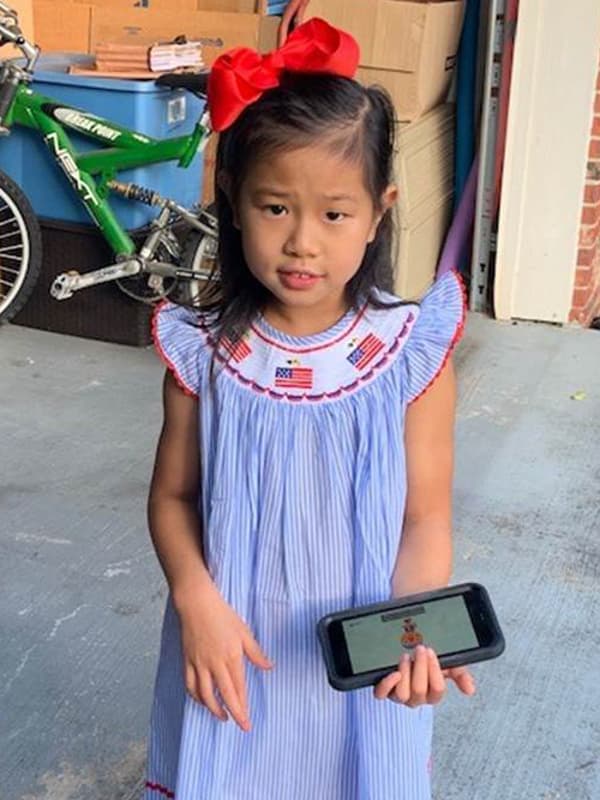
It’s just one area where care coordination can be so important, said Molly Miller of Brandon, whose 8-year-old daughter Savannah sees multiple specialists at Children’s of Mississippi. Savannah, adopted from an orphanage in China when she was a toddler, has a rare chromosomal disorder that affects how she communicates. The elementary-schooler is developmentally delayed and has autism.
“Savannah was on a bottle too long and had calcification,” Miller said. “We knew early on that we wouldn’t be able to get into her mouth. When you can’t clean Savannah’s teeth, eventually you will have to put her under to do a full cleaning, and we did that last year. Everyone knew what the others were doing.
“She was fine, and we are going back in six months. We have to stay on top of it,” Miller said.
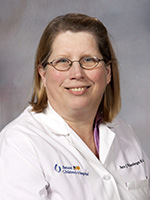
Of the complex patients she sees, including Savannah and Shameeka, “tons of them need the special skills our pediatric dentists have,” said Dr. Sara Weisenberger, an associate professor of pediatrics. “They need access to OR time. In-office anesthesia is a big risk for them.”
In her 30-plus years of caregiving, Weisenberger said, she’s seen an increasing number of children who need specialized dental care. “In my book, it’s don’t forget the eyes, and don’t forget the dental.”
Weisenberger said pediatrics residents perform pre-operative exams on patients before dental procedures involving anesthesia. “They know which ones are going to need to be sedated,” she said.
Such experiences are a huge factor in residency training, Hughes said. “You can train a pediatric dental resident very effectively if 20-30 percent of the children they see have special needs,” he said. “They can train here and become very sophisticated practitioners.”
One of the most important parts of training, Hughes said, is gaining the trust of patients and families. “The other one is becoming confident. Even a 3-year-old can tell if the trainee or the dentist lacks confidence.”
Trust can make the difference in whether Shameeka is able to cooperate when having her teeth examined. Her visit that day with Lee went well, “but last time, it was tough,” Goodman said. “Once we get in there, I’m usually able to calm her down.”
Pediatric dentistry and medical pediatrics work hard to make sure care isn’t disjointed, Paine said. “We ask new patients, ‘Have you seen Dentistry?’ if we know they are having issues, or if parents say they can’t brush their teeth or get into their mouths.
“Eating and smiling is just so central to how we present ourselves to the world. It really is a huge benefit to keep a close eye on these children’s oral health and dental health.”


